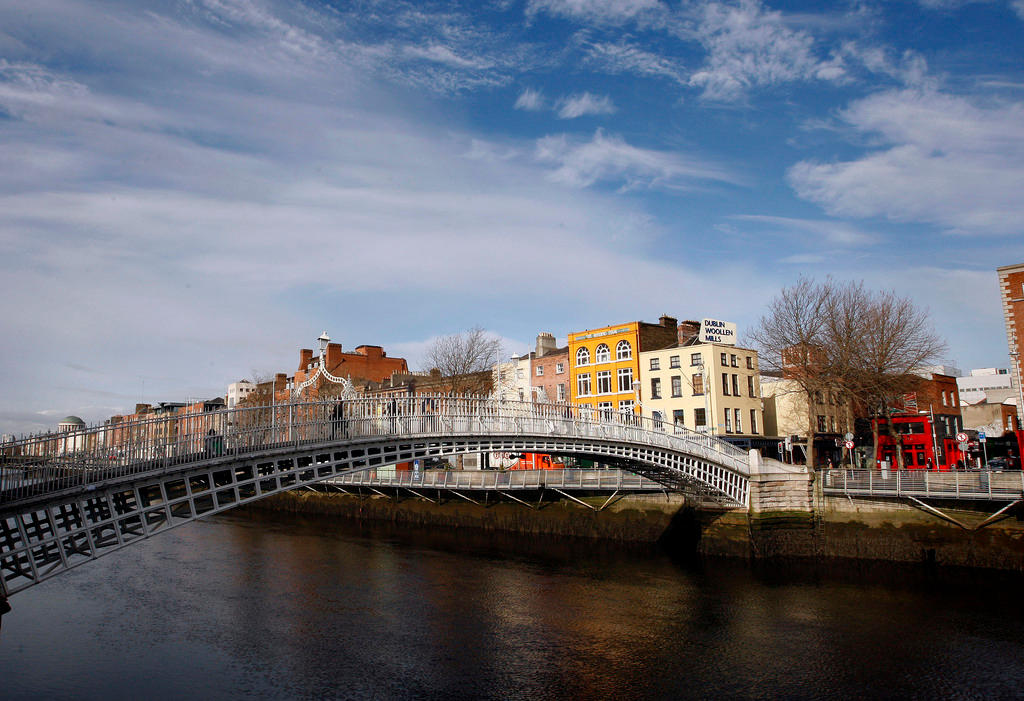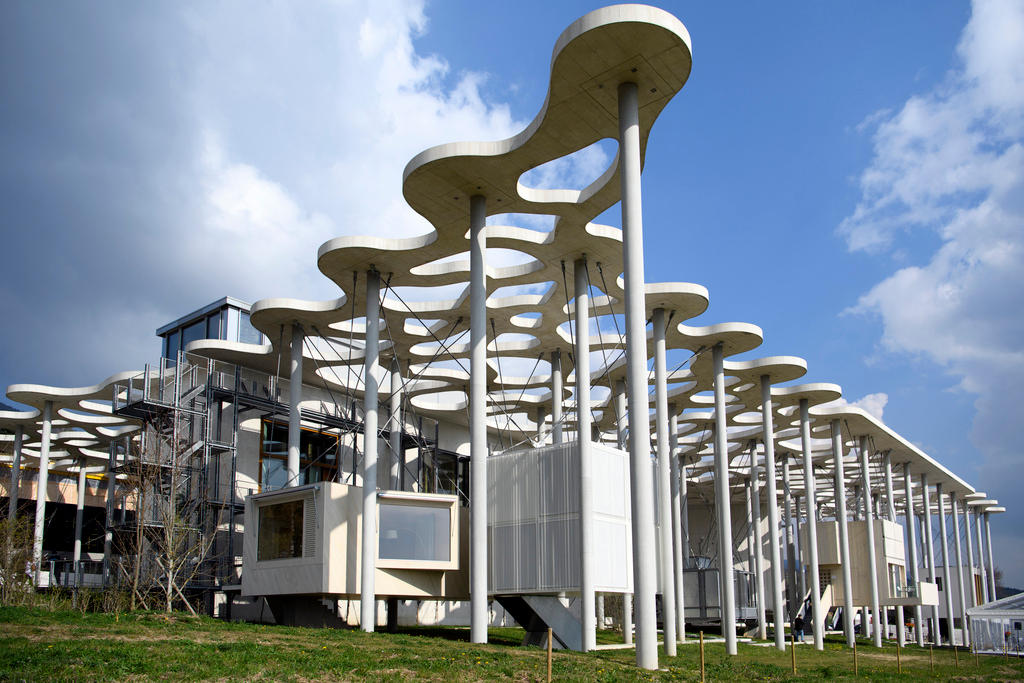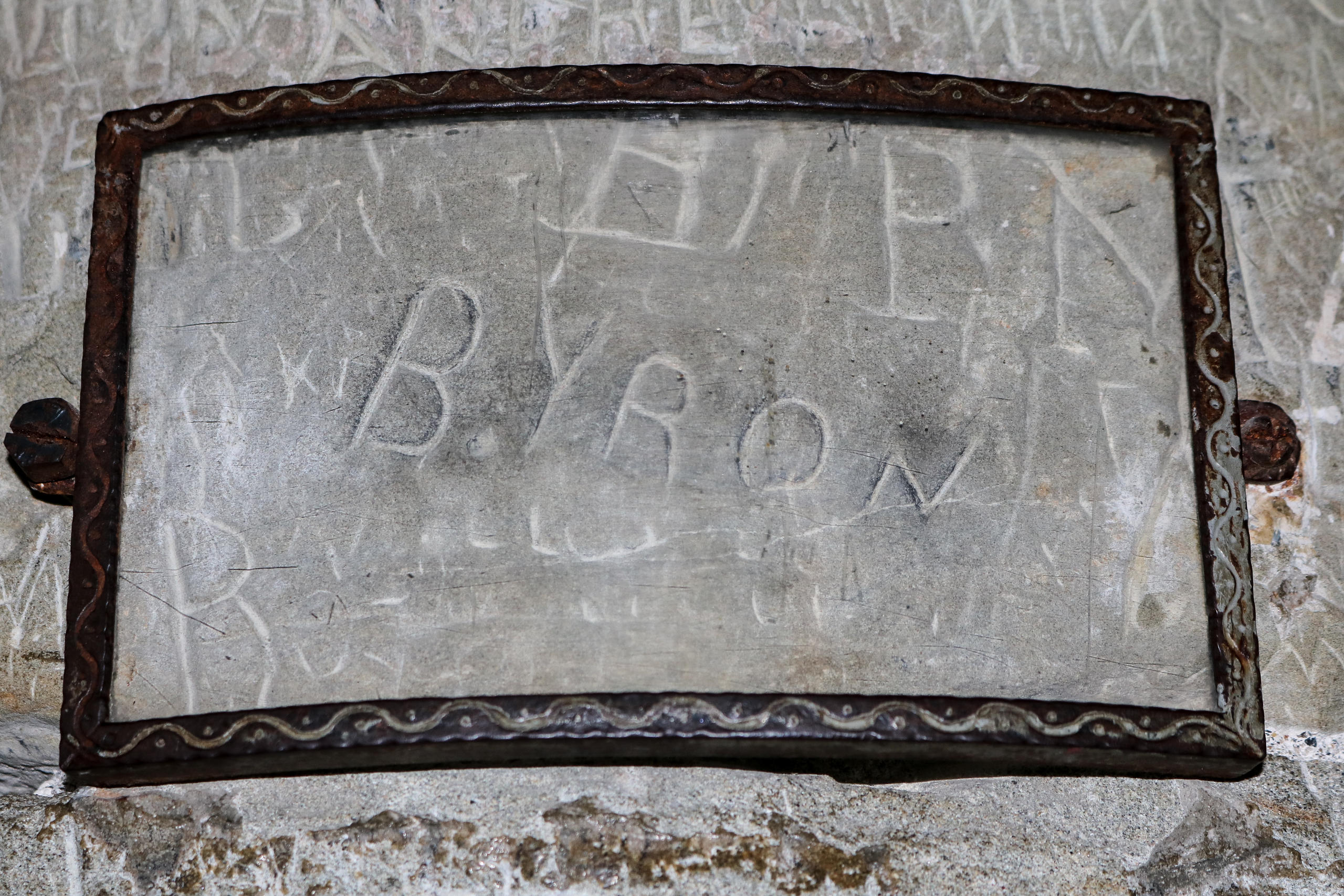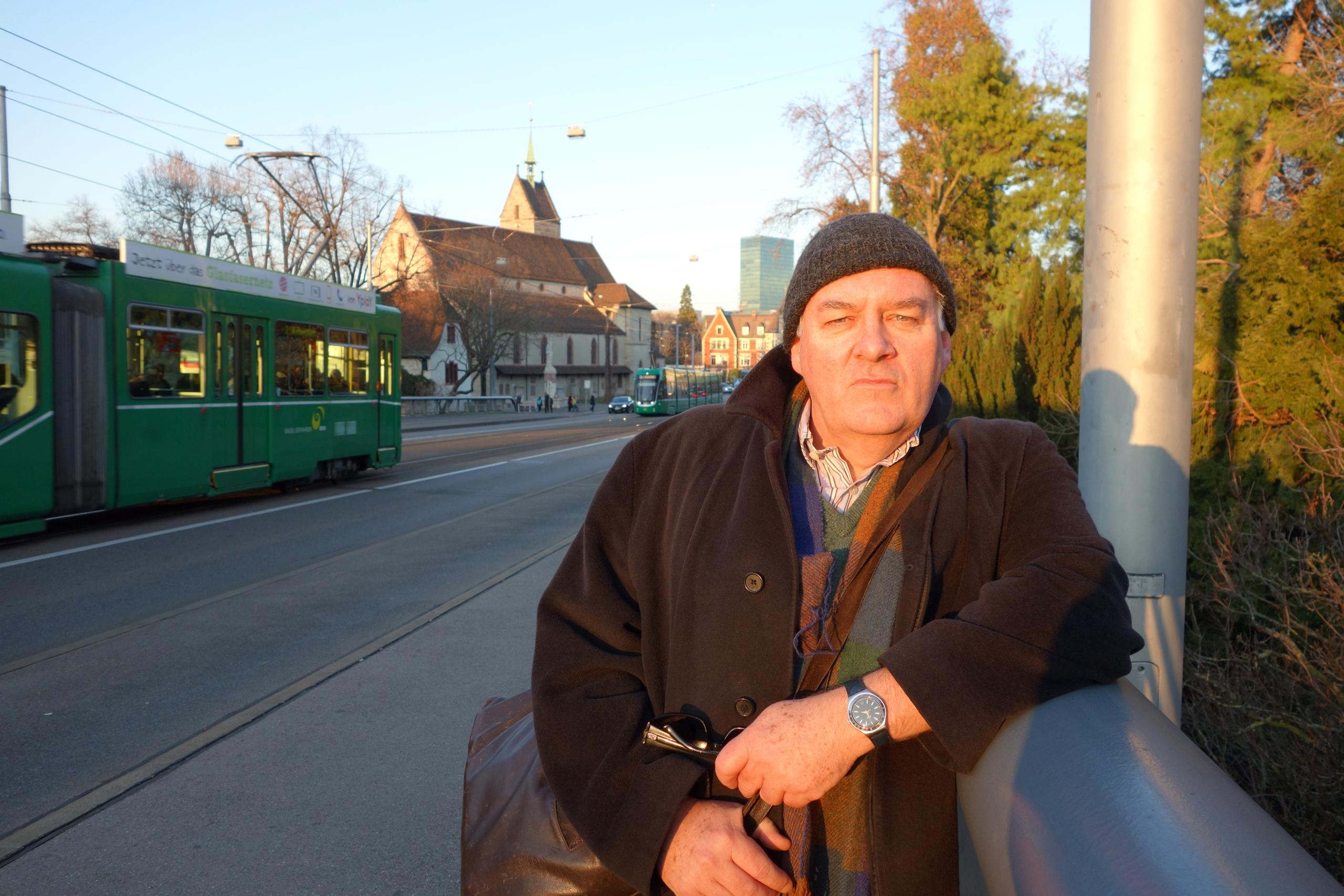John Banville: ‘the artist is the one with nothing to say’

The Booker prize-winning Irish writer talks about multiple selves, art as art, and James Joyce’s ego in Solothurn.
John Banville, 72, one of the most eminent living Irish writers, sits in comfortable obscurity outside the Hotel Krone in the cobbled centre of the Swiss town of Solothurn. It’s the first day of the local literature festivalExternal link, one of Switzerland’s biggest, held each May. But if any of the gathering crowds know who he is, they’re not shouting it from the rooftops.
All normal, for Banville. His four-decade-plus career has been strewn with success, and then some – winner of the 2005 Man Booker prize, recipient of the Prince of Asturias award in 2014, touted future Nobel laureate (Ireland hasn’t had one since Banville’s late friend Seamus Heaney won in 1995) – but he’s not particularly shouting about this from the rooftops, either.
“Artists are just like everybody else,” he says at one point. “They just look at the world a bit more closely.” To be read is one thing, to be known is another; and he’s convinced, in an old-fashioned but refreshing way, that only the art counts, not the creator behind it. “The work has nothing to do with the person that made it,” he says. It’s “ridiculous” to think that we can laud – or condemn – one according to the standards of the other.

Selves-exploration
It would be easy to misconstrue this posture of humility and “pure art” as, well, simply that; a posture built around the romantic notion of the writer as faceless genius, suffering in obscurity to produce eternal work. Especially since Banville, the modern epitome of the “writer’s writer” (a horrible notion that he has disparaged in other interviews), is known for intellectual, lyrical, poetic, and sometimes difficult books.
Talking to him, however, it’s clear he’s not putting it on. Not maliciously, at least. He simply doesn’t care too much if he’s known, or how he’s known. In fact, he doesn’t even know himself, he says, and he never will: the mere idea of the “self” as inner guiding pilot is just a “leftover from the religious notion of soul”. Besides, we are multiple, he says – “a succession of selves depending on context” – not unitary.
And though he also claims to have neither an interest nor a liking for himself (I don’t ask which of his many selves he’s referring to here), such a flexible notion of personhood can only be a good thing for a creative artist, especially a writer. If Banville has not gone as far as Portuguese poet Fernando Pessoa, who created a plethora of over 70 pseudonyms and identities with which he wrote, he has (like most writers) made good use of the ability to hop from ego to ego.
Through 18 novels, he has inhabited, often in the first-person, characters ranging from art historians (“The Sea”) to murderous scientists (“The Book of Evidence”), from Copernicus (“Doctor Copernicus”) to autistic maths geniuses (“Mefisto”), all in an elegiac but supple style that critics have compared to Vladimir Nabokov (Banville himself is flattered by this, but doesn’t belabour the comparison).
Even more intriguingly, in 2006 he birthed an alter-ego, Benjamin Black, under whose name he writes crime novels, thus further blurring the distinction between himself, his writing self, and his creations; while in his most recent novel, he stepped into the shoes of one of his writing heroes Henry James, penning (in the Jamesian style) a sequel to “Portrait of a Lady”.

Add to this his newest effort, a carefully-packaged memoir-cum-travelogue of Dublin in the 1960s, where Banville began his writing career (he was born in the more rural region of Wexford, just like another well-known Irish writer, Colm Tóibín), and a parody Twitter account of the author that routinely makes pretentious and portentous utterances (which he laughs at easily) and the question arises: what’s the next mutation for the Banville self?
Fittingly, he claims it will be an autobiography. But with a twist: each fact, each date, each anecdote will be “slightly – just slightly – wrong”. Whereas in reality he has a brother and sister, he says (as I wonder whether to believe anything he says anymore), the autobiography will have it as “two brothers”. Whereas he was actually born in 1945, in the book it will become 1943. And so on.
Art is art
Why bother with such a project? Well, he’s probably not even serious. But writers have constantly played with the boundaries of fact, fiction, and self over time. James Joyce, who lived (and died) in Switzerland, used modified variations of his own history to fuel his work – most obviously in “Portrait of an Artist as a Young Man”, where in a two-way process he also used the writing to build up his vision of himself as the heroic creator of “the conscience of [his] race”.
Banville, notwithstanding a deep admiration for Joyce’s prose, hasn’t much time for such personal mythologizing. Despite his reputation as Ireland’s most famous exile, Joyce was a firm inhabitant of “Joyceland”, Banville says. “He regarded the world as wherever he happened to be… His ego was enormous.”
Rather, for him, art is (as he began by saying) separate from the writer and separate from its time. The artist is the person who “has nothing to say”, he maintains, quoting Kafka. “A writer who imagines he or she has some pronouncement to make about politics, society, or morals, that’s foolish – you could just as well ask a plumber or a brain surgeon”. Writing, art, is about “taking the ordinary and making it extraordinary”.
At this point he gestures towards the staid wooden café table before us and claims that, with words, he could write it in such a way that it would glow. I think briefly of what his Twitter parody account would make of this. Then he relaxes, orders another wine, apologetically makes a phone call to his wife, and slips back into the more comfortable self of elegant Irish tourist in Switzerland.

More
Treehouses of language: inside a Swiss literature foundation

In compliance with the JTI standards
More: SWI swissinfo.ch certified by the Journalism Trust Initiative












You can find an overview of ongoing debates with our journalists here . Please join us!
If you want to start a conversation about a topic raised in this article or want to report factual errors, email us at english@swissinfo.ch.